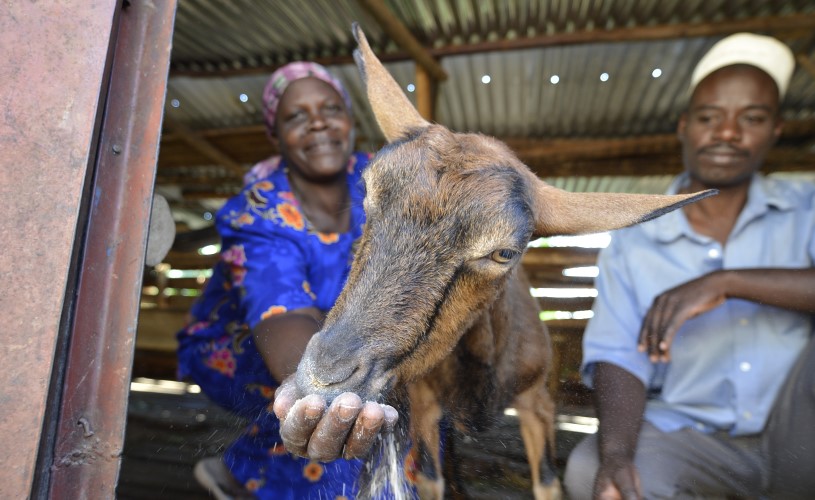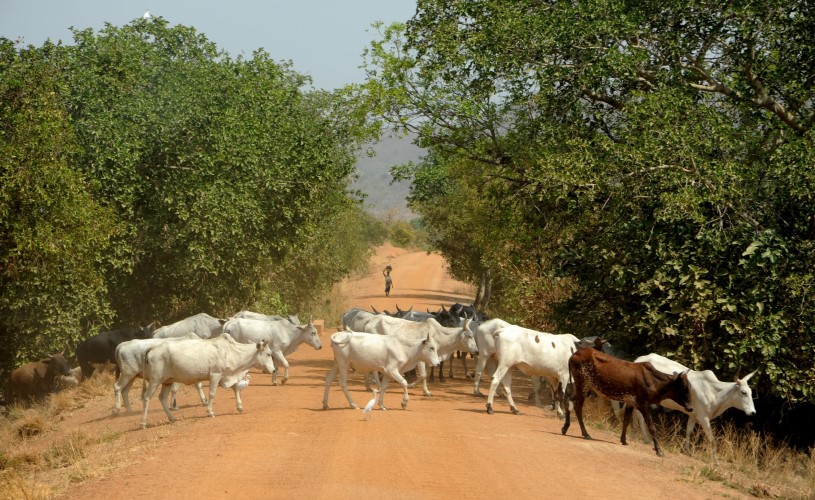Sustainable pasture management in Southern Africa
IKI Growing Greener: Restoration and sustainable management of agropastoral systems in open arid landscapes across Southern Africa
-
Commissioning Party
German Federal Ministry for the Environment, Nature Conservation, Nuclear Safety and Consumer Protection (BMUV)
-
Country
-
Lead executing agency
More
-
Overall term
2023 to 2029
-
Other Stakeholders
Joint partners: Conservation International (CI), Peace Parks Foundation (PPF), Centre for Coordination of Agricultural Research and Development (CCARDESA)
-
Products and expertise
Rural development and agriculture

Context
The majority of Southern Africa consists of semi-arid to arid ecosystems with enormous biodiversity. Most of the population there is dependent on agriculture for their livelihood. However, degradation and desertification caused by unsustainable land use threatens around a quarter of productive land. Climate change is further exacerbating the situation. This negatively impacts biodiversity and increases the conflict between humans, their livestock and wild animals.
 © GIZ / Meissner
© GIZ / MeissnerObjective
Climate-adapted livestock farming in Botswana, Madagascar, Zambia, and South Africa is restoring the savannah and preventing the spread of desertification.
Approach
The International Climate Initiative (IKI) project is applying a regionally developed model for integrated grazing in communal areas (Herding for Health, H4H) in order to manage communal pastures better and more sustainably. The grazing areas are rotated at controlled intervals so that the soil quality and vegetation are permanently improved. The project applies H4H on 925,000 hectares (equivalent to the surface area of Cyprus) in four countries in Southern Africa.
Mobile livestock enclosures prevent the transmission of zoonotic diseases such as foot-and-mouth disease and minimise conflicts with wild animals. The resulting healthier livestock enables livestock farmers to achieve higher sales prices and opens up new markets to them, for example marketing their products as wildlife-friendly to the regional tourism industry.
In addition, the environmentally friendly concept reduces greenhouse gas emissions because intact soils can store large amounts of carbon.
The Deutsche Gesellschaft für Internationale Zusammenarbeit (GIZ) GmbH is implementing the project together with the Peace Parks Foundation, Conservation International Foundation, and the Centre for Coordination of Agricultural Research and Development for Southern Africa.
Last update: November 2023






